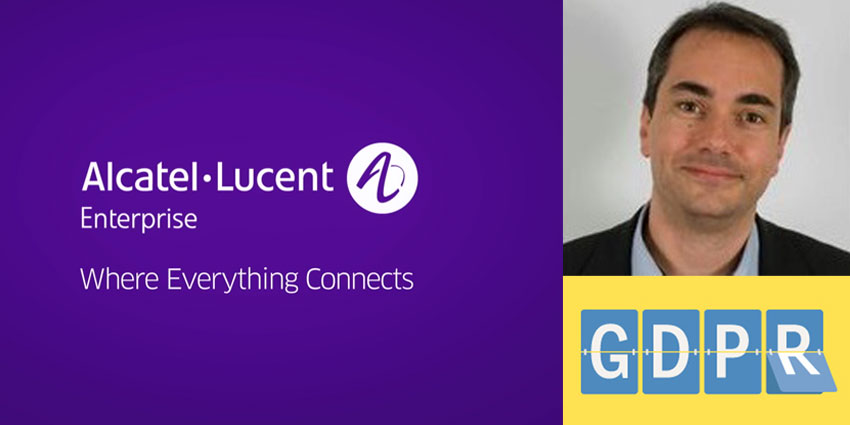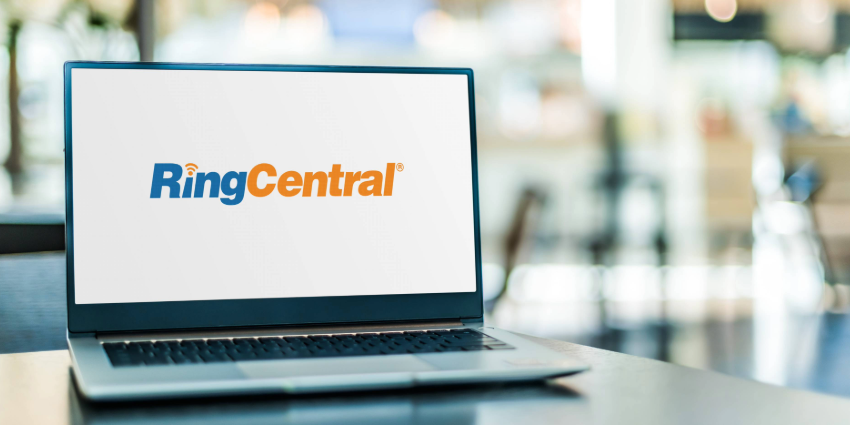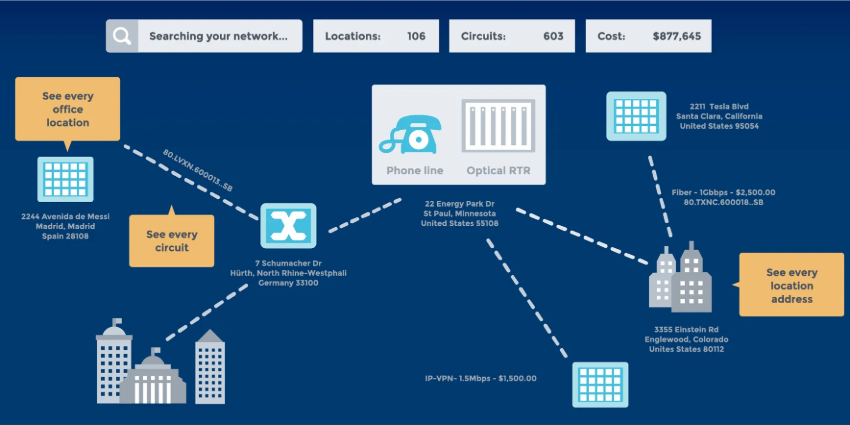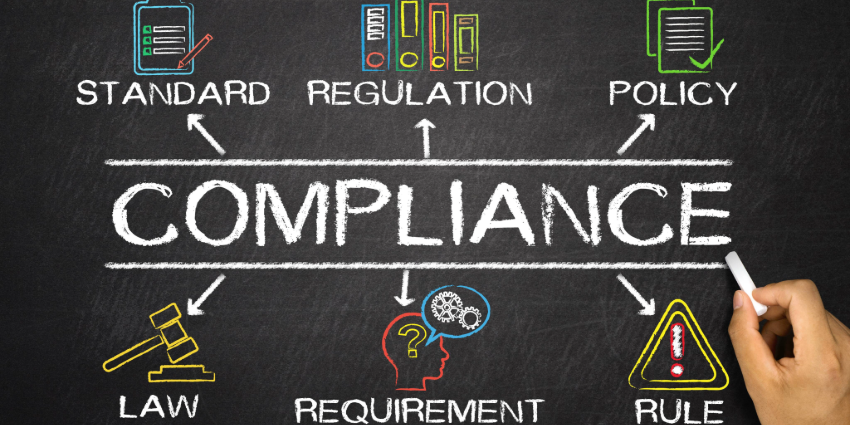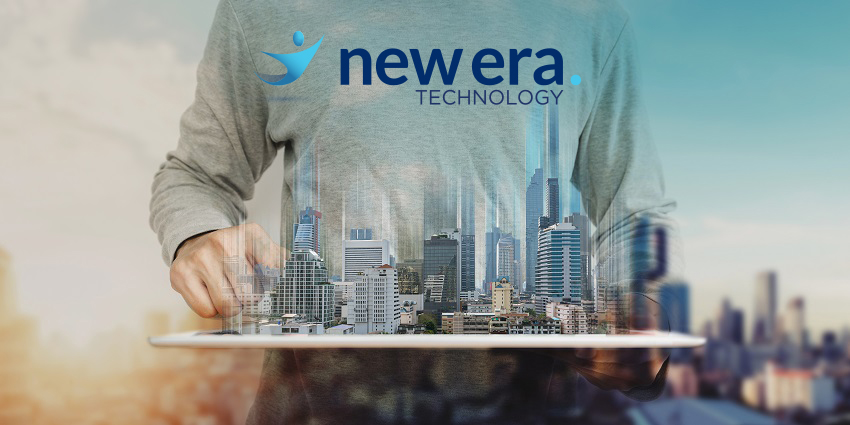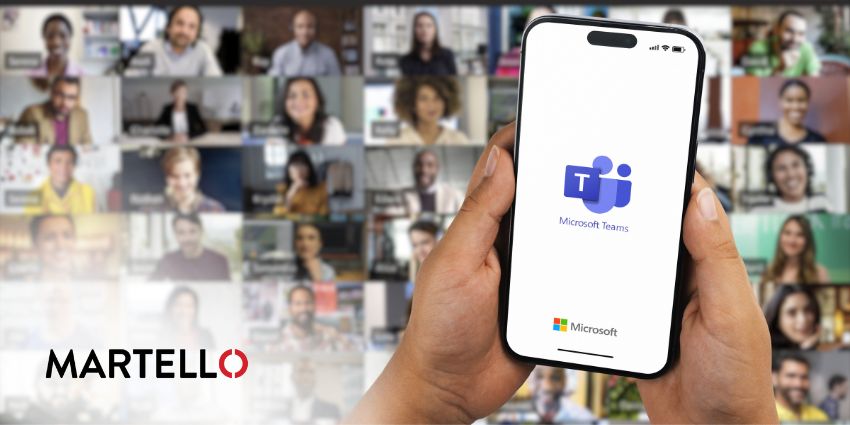GDPR is a topic that’s been on the lips and minds of almost every organisation in Europe for the last year or so. Now that the deadline has been and gone, the panic about GDPR has begun to die down, but there are still a lot of questions to answer, and many issues to overcome.
Alcatel-Lucent Enterprise or “ALE” is one of the leading digital transformation (DX) companies helping enterprises to embrace new technology with the needs of GDPR in mind. ALE integrates useful systems, deploys analytical software, and connects various parts of the business information stack, all with consideration of data privacy in mind.
We caught up with the recently-appointed Chief Technical Officer for ALE, Nicolas Morel, to discuss what GDPR means to Alcatel Lucent Enterprise, and how they’re helping their customers engage with the new standards.
Tell Us About Yourself, and ALE
ALE currently serves more than 830,000 customers across the globe under the Alcatel-Lucent Enterprise brand. The company delivers award-winning solutions to processes, people, and organisations, to help everyone compete in a digital environment.
Nicolas Morel became the CTO of the Alcatel-Lucent Enterprise communications unit at the beginning of this year. Before his promotion, Nicolas was working as the director of strategy and corporate marketing for ALE. In his new position, Nicolas is responsible for everything from assessing new technologies, to evaluating the regulatory aspects and changes that might affect the business in the future.
What is GDPR from ALE’s Perspective?
The first thing I asked Nicolas, is how ALE sees GDPR:
“GDPR is a dramatic change in the regulatory environment that we operate in. For a long time now, there’s always been security and privacy concerns for businesses to deal with, GDPR is the thing that brings those concerns to the forefront, changing the way that we develop solutions and products.”
Nicolas told me that in the past, companies were most concerned about making sure that they didn’t get hacked, and keeping data secure in that way, GDPR pushes a reconsideration of what data security means, by looking at the conversation that brands have with their customers. “The privacy and protection conversation in the EU isn’t just about whether your comms system is reliable and efficient anymore – it’s about whether your conversations with customers are safe.”
For ALE, GDPR is the solution that’s creating renewed attention for the way that people approach security and data privacy, all the way from recording data, and getting permission from customers to making sure that information isn’t tampered with.
How Is GDPR Affecting Your Responsibilities as a Company?
One thing I was interested to learn about from Nicolas, is how the rise of GDPR has changed the responsibilities that ALE has in looking after their end-customers. He told me that the responsibility of a comms and digital transformation company is never ending when it comes to privacy and security.
“GDPR is guidelines, but as soon as your technology evolves, or you start taking new features into your products, you’re going to need to implement new measures and securities.”
ALE believes that security and privacy is a never-ending concern – something that’s always going to be an evolutionary process for any organisation. “From an ALE perspective, we start with the data, making sure that it’s protected, and that if any breaches do happen, our end user knows as quickly as possible. We started with this at an organisational level, designing solutions and products that are embedded with GDPR from the ground up.”
Nicolas told me that ALE is also agile in responding to their customer needs, reacting quickly to changes in their strategy, “We also have partner and internal salesforce training to help our customers. After all, GDPR starts with the conversation with the customer. That means that we’re starting to take on a more advisory and education-based role – something that we’re not used to.”
How Does Rainbow Help with GDPR?
 Following on from our discussion about how ALE supports their customers with GDPR concerns, Nicolas told me that Rainbow is one of the many solutions that the company offers to help their clients. “Rainbow is a very comprehensive collaboration tool, which bridges the gap with customers and partners. You generate a ton of data through this solution which can be either made anonymous or connected to a specific person – but that’s where GDPR comes in.”
Following on from our discussion about how ALE supports their customers with GDPR concerns, Nicolas told me that Rainbow is one of the many solutions that the company offers to help their clients. “Rainbow is a very comprehensive collaboration tool, which bridges the gap with customers and partners. You generate a ton of data through this solution which can be either made anonymous or connected to a specific person – but that’s where GDPR comes in.”
Rainbow can keep users informed of their rights and provide end-users with tools to get rid of information and data if necessary. At the same time, it provides plenty of control over how to manage the data the company collects – whether they need it to be anonymous or connected to specific details.
“There’s a huge conversation to have about GDPR now, and it’s a time when everyone’s still learning what they can accomplish in a world of GDPR.”
How Is the UC Vendor Experience Changing?
Nicolas told me that up until now, UC vendors like ALE simply hadn’t been used to having the kind of responsibility that GDPR imposes on their shoulders. In the past, comms companies used to simply install a PBX and hand privacy concerns over to the customer. However, with new cloud-based services like Rainbow in the mix, everyone is more connected.
“It’s a complex environment, where there needs to be a lot of understanding about where the data is, and what needs to be done with it.”
Nicolas noted that GDPR isn’t the only regulation to consider either – there are plenty of other rules to consider that are linked to specific verticals – such as all the regulation around health data. “There are links between GDPR and those specific regulations too, so you need to find a balance between sometimes contradictory rules. It’s up to vendors like us to take on an advisory role now and help with this complexity.”
Will There Ever Be a Finishing Line for GDPR?
Now that GDPR is fully immersed in the communication and business environment, I asked Nicolas whether there was a finish line in sight:
“I think data privacy will never be finished because there will always be new and clever ways to gather data. Just look at all the new technology around AI, voice recognition and things like that. Privacy concerns will continue to develop naturally over time, which means that companies need to keep reassessing their strategy.”
For ALE, it’s all about keeping the market informed and educated as privacy evolves.
To find out more, you can download “the Building business collaboration in accordance with the GDPR regulation” white paper.
